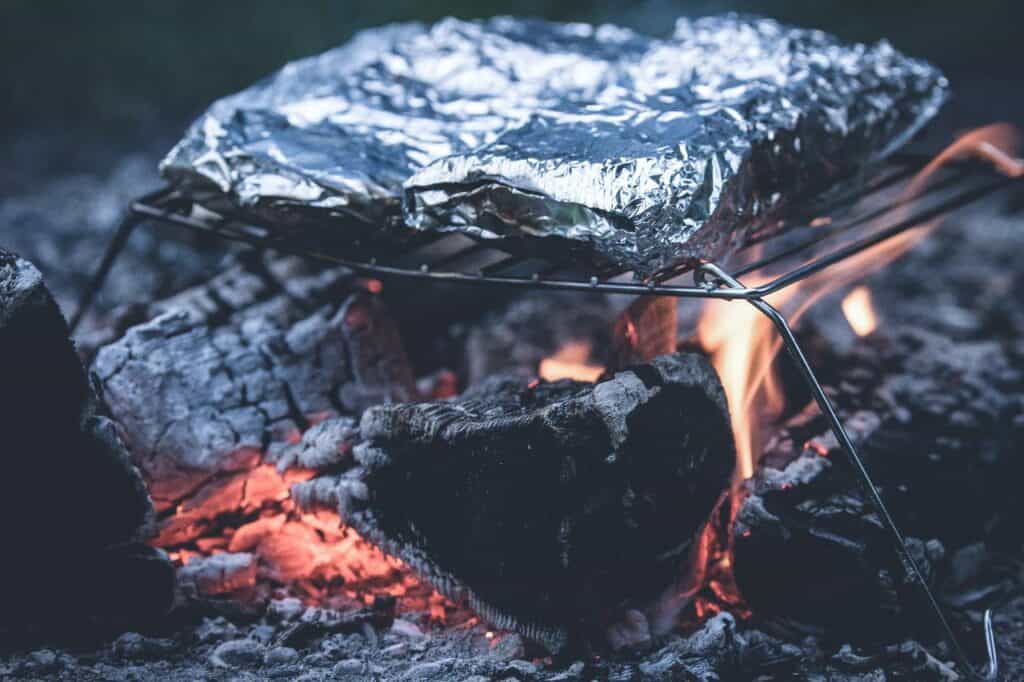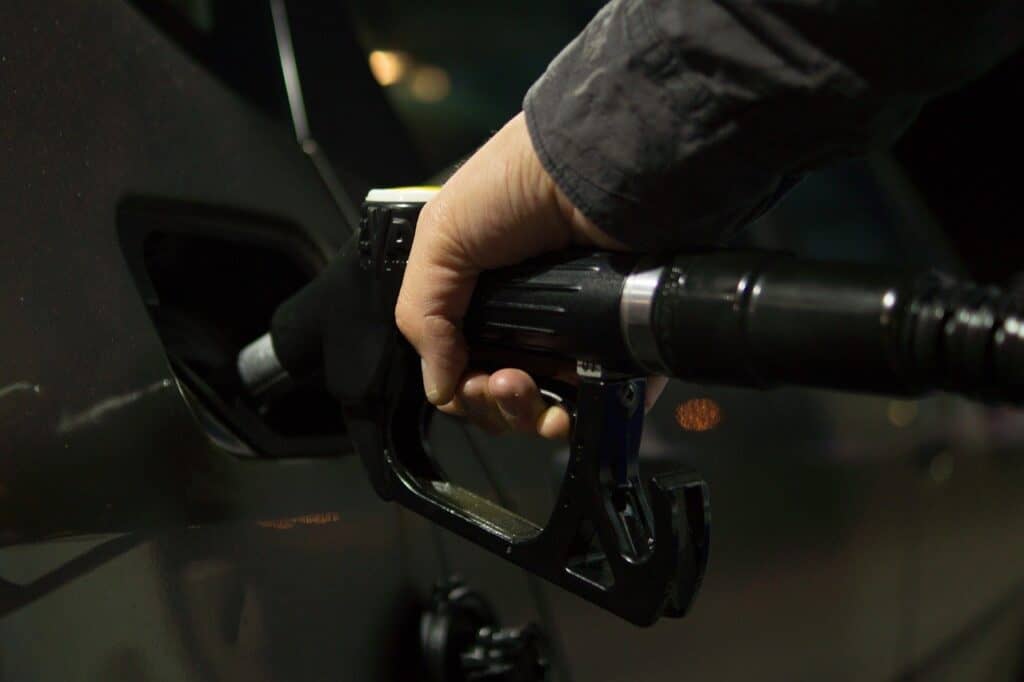Aluminum foil is super popular in the kitchen. In fact, since about 1920 we’ve been packing food in aluminum foil and it’s been very easy and low cost to do so. But should we be using aluminum foil like this? Are we keeping our sandwiches fresh at the expense of adding a fire hazard into our lives? Is it likely that our aluminum foil is going to burst into flame at the worst possible time?
Aluminum foil is not flammable and can only catch fire at very high temperatures. Aluminum foil won’t catch fire until it reaches approximately 1220 Fahrenheit (660 Celsius).
Let’s take a closer look at aluminum foil, and the concerns regarding heat and flames. Here’s what you should know about aluminum foil.
Your # 1 priority is keeping your family safe. As a firefighter, I recommend everyone has updated smoke detectors that don’t require battery changes, like these ones from Kidde, a fire extinguisher, like this one from Amerex, and a fire escape ladder if you have bedrooms above the first floor, I recommend this one from Hausse.
Also read: What Makes Something Flammable?
What Is Aluminum Foil?

Aluminum foil (or aluminium foil outside of North America) and sometimes called “tin foil” (a dreadful misnomer as there is no tin, whatsoever, involved in making this foil) is simply pure aluminum prepared into very thin metal leaves.
Oddly, Australians tend to call aluminum foil “alfoil” which is often confusing for new arrivals to the continent.
Any such product that is less than 0.2 mm thick is considered to be “aluminum foil”. The stuff we use in our kitchens tends to be around 0.016mm thick and the heaviest duty foils we use at home tend to be around 0.024mm which is pretty thin, indeed.
The good news is that this makes the foils thin and easy to wrap around the food that we want to protect with it.
75% of all the world’s aluminum foil is used in the food industry, though it’s worth noting that 25% is used in industry mainly for electrics and electronics.
One nice thing about aluminum products is how easy they are to recycle.
Aluminum foil was first produced back in 1886, but it wasn’t until 1910 that production could be industrialized, and it immediately replaced actual “tin foil” (yes, the original foil was made from tin).
One of the first major commercial uses for aluminum foil was for wrapping Toblerone chocolate bars.
In the United States, the first use of the foil was to wrap packs of Life Savers candies in.
One thing that it is very easy to state with certainty about aluminum foil is that it is not, in the remotest but, flammable.
Does It Catch Fire?
No, not at all. Aluminum foil if heated in a fire may become discolored which could lead someone, mistakenly, to believe that it had caught fire, but this is not the case. This discoloration is impurities from the smoke of the fire becoming attached to the surface of the aluminum foil.
If you wanted to, and had the right solvents to hand for the most stubborn smoke particles, you could wipe this off the foil and see that it was still in the same state as when it started.
It will eventually catch fire, as most things do, but it requires extremely high temperatures to ignite. This means it is not a fire hazard in most common applications.
Aluminum foil will melt at high temperatures, as seen in this video:
Butane torches can get up to 2600 degrees Fahrenheit (1430 Celsius) and that is why it can melt aluminum foil.
Also read: Is Tape Flammable? Sometimes…
At What Temperature Does It Catch Fire?
No, in order to burn aluminum foil – you would need to raise the temperature to around 1,220 degrees Fahrenheit (660 Celsius) as this is the ignition temperature.
This is far hotter than you would expect to be able to achieve in a home or industrial setting under normal circumstances.
Aluminum foil can withstand any temperature up to the burning point of 1,220 degrees Fahrenheit. Thus, in normal life you’re not going to be able to set it on fire.
Also read: Is Aluminum Flammable?
What Happens When Foil Burns?
If you were to get the aluminum hot enough to burn, you would create aluminum oxide. Which is the simple combination of the metal ions with oxygen ions from the air.
Does It Burn In The Oven?
No, aluminum foil doesn’t burn in the oven.
Your average oven reaches temperatures of a maximum of 500-600 degrees Fahrenheit. That’s about half the temperature required to burn aluminum foil and in an electric oven, you also have no source of ignition for aluminum foil.
Is It Safe To Use In The Oven?
There’s probably a long debate to be had regarding the use of aluminum in cooking. While from a fire safety perspective there is no reason not to use it, there are serious health concerns relating to the use of aluminum.
We’ve read unusual assertions that cooking food wrapped in aluminum foil could cause an electric spark which sets the oven on fire – we’d just like to point out that this is not feasible and the oven is even less likely to burn than the aluminum foil.
It is linked to Alzheimer’s and premature dementia and while this link is not absolute (and we’re not medical professionals) it is pronounced enough that it should provide pause for thought.
Where possible, you might want to consider using alternative materials to aluminum when it comes into contact with food.
Does It Burn In The Microwave?
No, aluminum foil does not burn in the microwave. That doesn’t mean, however, that it is safe to use aluminum foil in the microwave.
Aluminum foil should not be used in the microwave, as it can potentially spark and start a fire or ruin the microwave. It is not safe to use, see this article for more info.
Is It Safe To Use In The Microwave?
No. Metals in a microwave reflect the microwaves back to their source.
This has two potential problems.
The first is that your food won’t cook properly if wrapped in aluminum foil.
The second, and bigger problem, is that eventually enough microwaves could be reflected back into their source that the source catches on fire.
Check out what can happen here:
Related Articles
Is Olive Oil Flammable? Can it Catch Fire?

